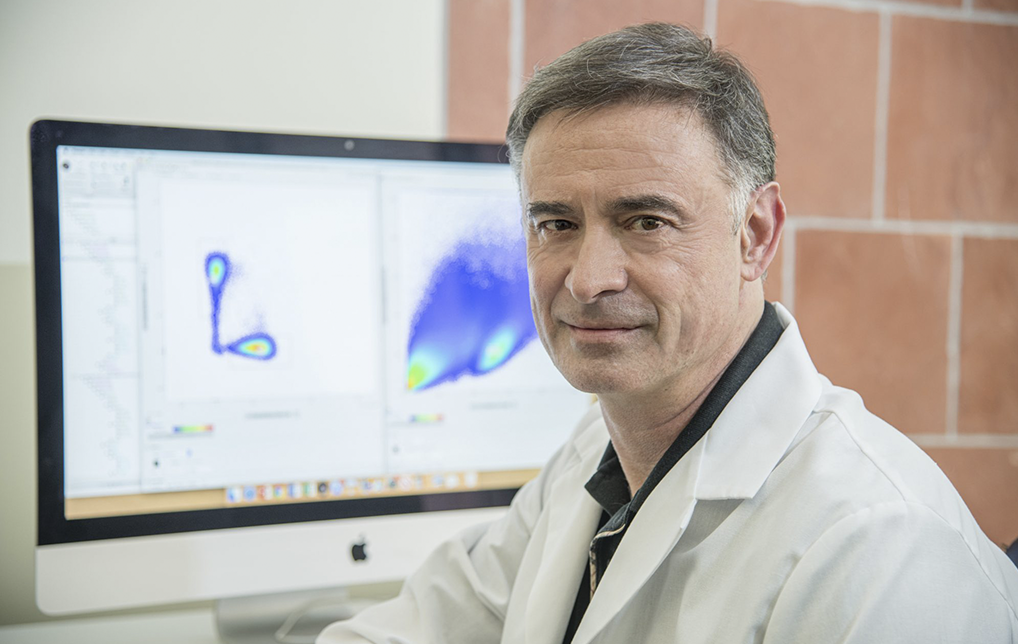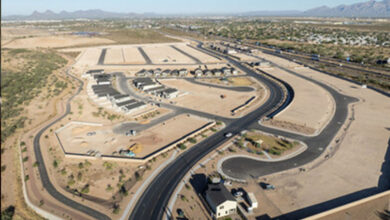
Renowned UArizona Scientist Named 2021 Arizona Bioscience Researcher of the Year
Dr. Janko Nikolich-Žugich has been honored as the 2021 Arizona Bioscience Researcher of the Year by the Arizona Bioindustry Association.
“Dr. Janko Nikolich-Žugich uses his skills and talents to advance the fields of aging and immunology and helped reduce the devastating effects of COVID-19 while building a body of scientific knowledge that can be used in other pandemics as they arise,” said Joan Koerber-Walker, AZBio president and CEO. “For his groundbreaking work and deep commitment to finding answers to some of our most challenging scientific questions, he has been named the 2021 Arizona Bioscience Researcher of the Year.”
Nikolich-Žugich is an internationally recognized immunologist and gerontologist. In addition to important career-long contributions in his chosen fields, he leveraged his expertise to develop one of the most accurate COVID-19 antibody tests in the world, laying the foundation for a comprehensive statewide testing program.
Nikolich-Žugich moved to the University of Arizona in 2008 to lead the Department of Immunobiology and the Arizona Center on Aging after a series of scientific leadership roles at other prestigious institutions. He is also a professor of immunobiology, medicine, nutritional sciences, genetics, and neuroscience and a member of the BIO5 Institute.
He has devoted his research to understanding the relationships between infection, inflammation and immunity in the context of aging. He has published over 180 scientific papers and has earned many significant grant awards, including more than $73 million in awards from the National institutes of Health and a recent $4.5 million MERIT award from the NIH to study how stress and infection affect aging.
Through his work, Nikolich-Žugich has identified alterations in the immune system that may cause people to become more vulnerable to microbial pathogens as they get older. To improve quality of life and prevent disease, he works to correct defects in immunity with novel vaccination approaches and immune system rejuvenation treatments, and seeks to learn how common infectious, psychological, and physical stressors affect immunity and lifespan
Recognizing the unreliability of early antibody tests, he used his expertise in immunology to quickly develop a more accurate and effective test that was deployed across Arizona and available to first responders, healthcare workers and other vulnerable populations in Arizona. As production capacity of the antibody test grew, it became available to 60,000 UArizona faculty, staff and students, as well as the community at large.
His COVID-19 antibody test rapidly garnered global attention for its high specificity and prompt implementation and has proven to be an important tool in identifying community exposure/reach and data related to individual and group immunity. Collective data produced through the testing program has informed the public health approaches, development of therapeutics for COVID-19 patients, and vaccines to guard against infection.
Nikolich-Žugich also used his expertise in aging to identify why older adults are more vulnerable to COVID-19. Using data and state-of-the-art modeling, he is identifying mechanisms for susceptibility, and with that knowledge, is working to prevent COVID-19 morbidities and mortalities in these populations and explore possible novel treatments.
With the insights and tools Nikolich-Žugich helped develop over the past year, he has been asked to lead a new public/private partnership institute at UArizona that will leverage the knowledge garnered during COVID-19 to predict and prepare for future global pandemics.
The concept and reach of the institute will extend beyond what any single department or college could do on its own and will require partnerships across UA departments and colleges as well as universities, foundations, non-profit entities, government, and industries throughout the world. It will comprehensively address gaps in pandemic preparedness, including, but not limited to, the biomedical, micro-and immunobiological, economy, legal, psychosocial, behavioral, built and natural environment, and policy levels.





